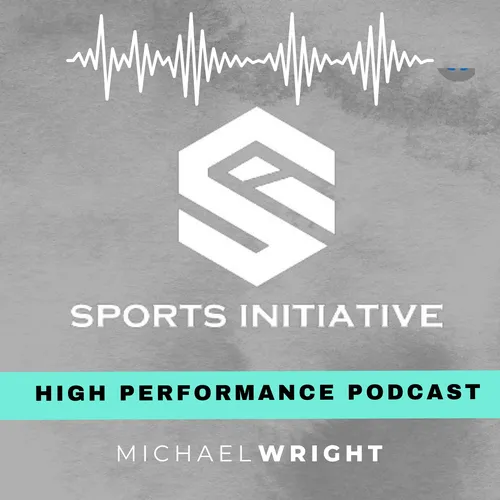183 - Chris McCosker - The misconceptions of skill acquisition
- Author
- Michael Wright
- Published
- Thu 29 Aug 2024
- Episode Link
- https://shows.acast.com/thesportsinitiativepodcast/episodes/183-chris-mccosker-the-misconceptions-of-skill-acquisition
Chris McCosker's Career Journey - 1:07
Chris McCosker shares his career progression, from completing a PhD in skill acquisition to landing an academic position at the Australian Catholic University, where he now focuses on teaching exercise and sports science, particularly in the field of physical education and skill acquisition.
Skill Acquisition and Performance Environment- 2:47
Chris McCosker explains skill acquisition as the need for adaptability across different performance environments, emphasizing the importance of understanding how athletes interact with their environment to identify areas for improvement. Michael Wright inquires about assessing an individual's ability to implement a skill with adaptability, leading to a discussion on the impact of opponents in performance environments.
Enhancing Training Scenarios for Athletes -7:40
Chris McCosker and Michael Wright delve into the challenges athletes face in long jump and how to replicate competition pressure in training. They discuss breaking down the struggles athletes face and manipulating training competitions to make them adaptable, emphasizing the importance of knowing athletes and designing effective constraints.
Discussion on Practice Design and Repetition-15:29
Michael Wright seeks to understand the role of repetition in practice design within the context of the constraint-led approach and ecological dynamics. Chris McCosker explains the concept of "repetition without repetition" and emphasizes the importance of movement variability in training. He also highlights the need to balance repetition and variability in practice design to optimize learning.
Creating Functional Movement Scenarios-18:56
Chris McCosker and Michael Wright delve into the intricacies of designing training scenarios that promote functional movement. They caution against overloading the scenarios with constraints and stress the importance of allowing players to make their own decisions. The conversation also highlights the concept of providing secret tasks to players to foster independent problem-solving and decision-making during training sessions.
Skill Acquisition and its Role in High Performance Environments-26:06
Chris McCosker discusses the role of skill acquisition in high performance environments, highlighting that it should be viewed as a discipline of sports science that coaches can access. He explains the importance of following the scientific process, collecting data, and working with other disciplines to improve performance. Michael Wright expresses interest in the challenges of tracking and measuring data points in skill acquisition compared to physical data points in biomechanics or strength and conditioning coaching.
Skill Acquisition and Long-Term Development- 31:51
Michael Wright and Chris McCosker delve into the complexities of skill acquisition in sports, focusing on the example of teaching a cricketer a specific shot like the reverse sweep. They stress the need for a long-term approach, emphasizing the challenges of improving technique and creating an environment for athletes to explore and develop different movement solutions. The discussion also touches on the importance of data points, detailed intervention plans, and the transfer of skills into the performance environment.
Skill Development and Variability in Training- 36:49
Michael Wright and Chris McCosker delve into the differences in skill development and training approaches for athletes of different ages and abilities. They stress the importance of tailoring training methods to suit individual skill levels and the need to gradually introduce variability in training based on the athlete's confidence and proficiency.
Hosted on Acast. See acast.com/privacy for more information.
